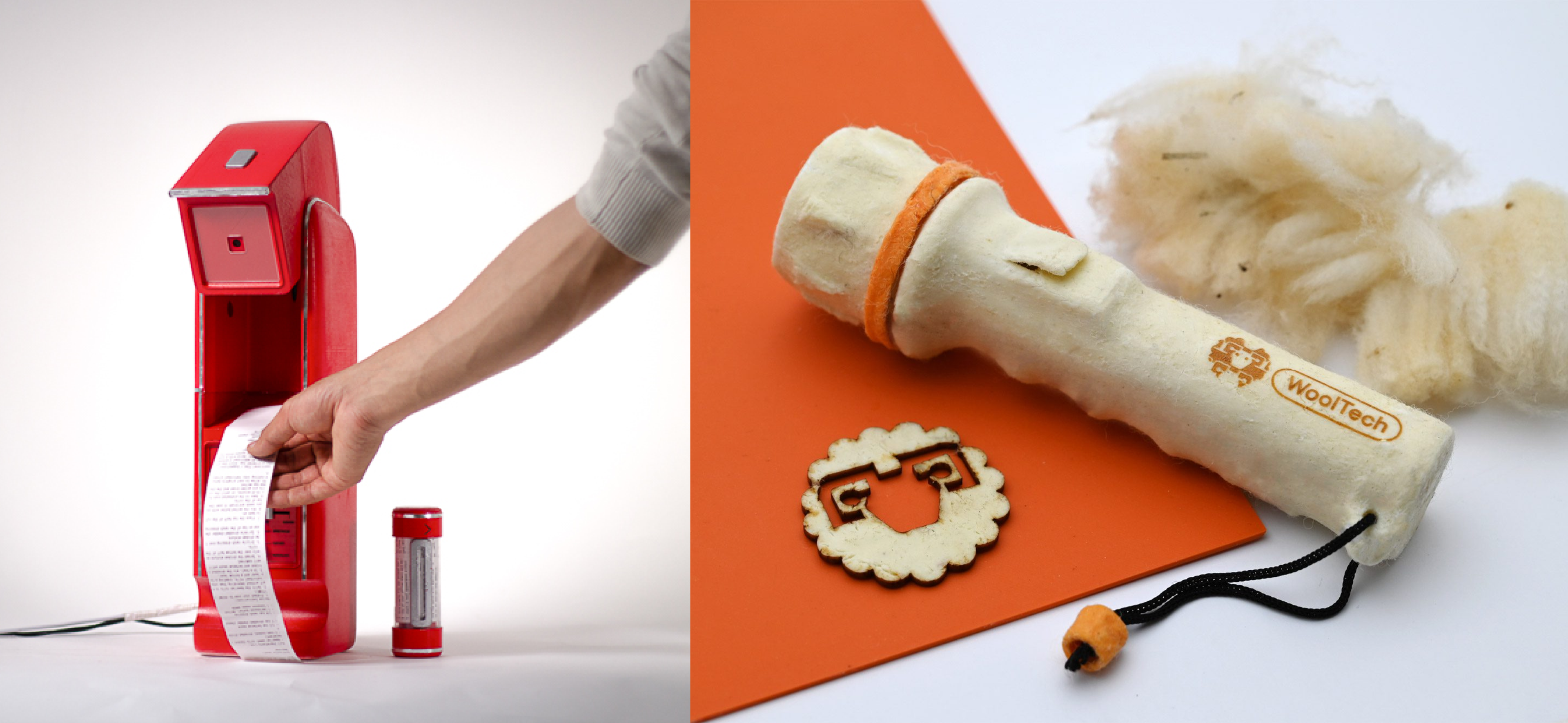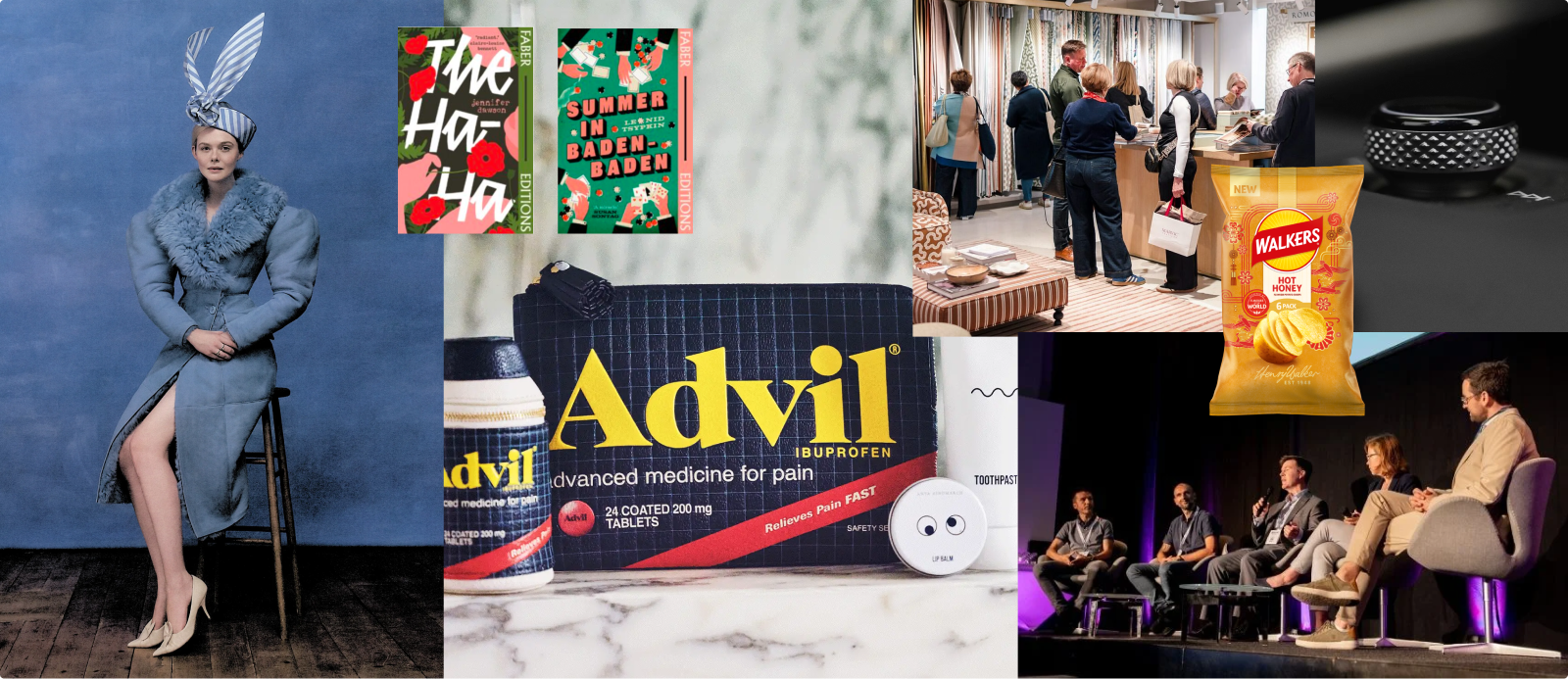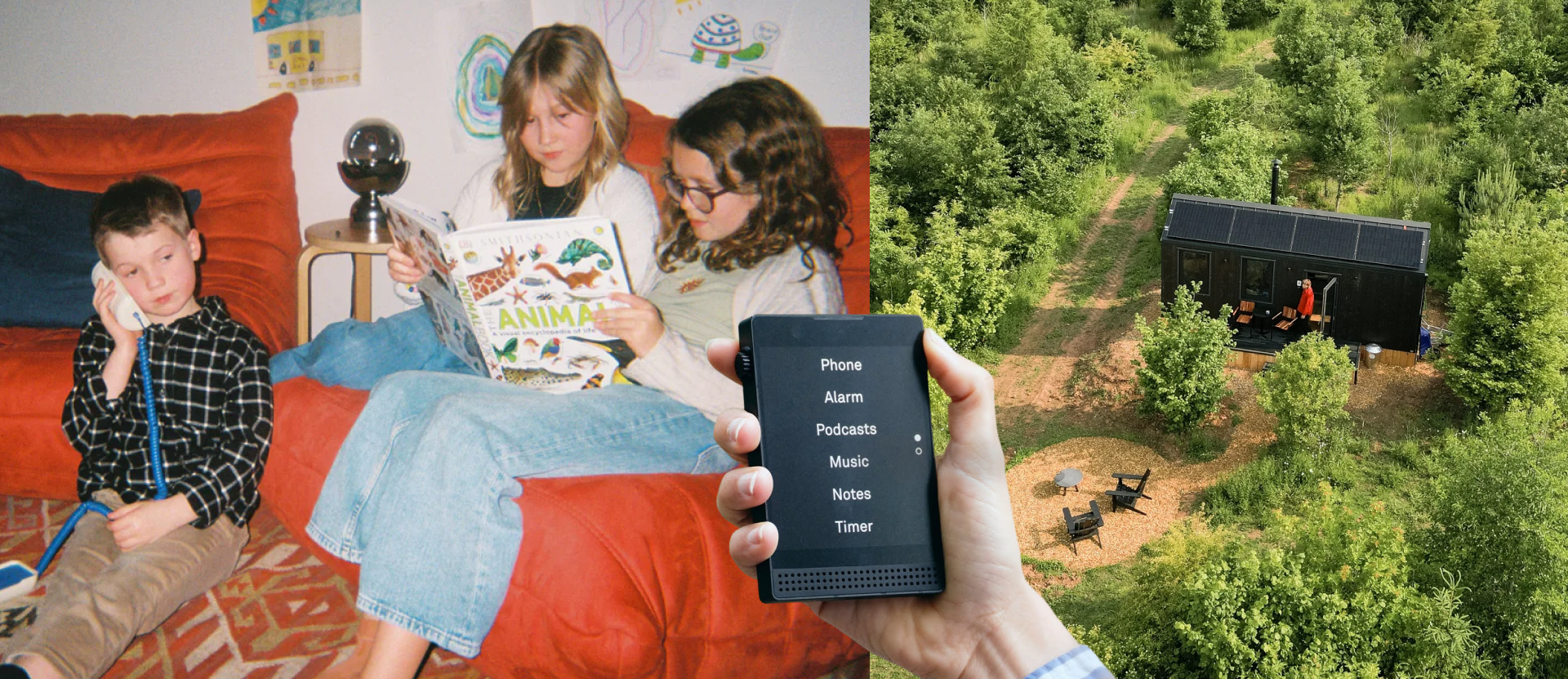

As a studio that works at the intersection of design and healthcare, we often talk about innovation. But not all innovation is about pushing technology forward, sometimes it’s about stepping back. In a world obsessed with faster, smarter and more connected devices, we’re seeing a quiet counter-movement take shape, one that celebrates simplicity, focus and intentional design.
We’ve gathered a few examples to illustrate our point. Take Tin Can, the new landline-style phone for kids that lets them call friends without the endless distractions (and dangers) of smartphones or social media. It’s a reminder that good design can empower, not overwhelm, giving children autonomy and connection, without sacrificing their wellbeing.
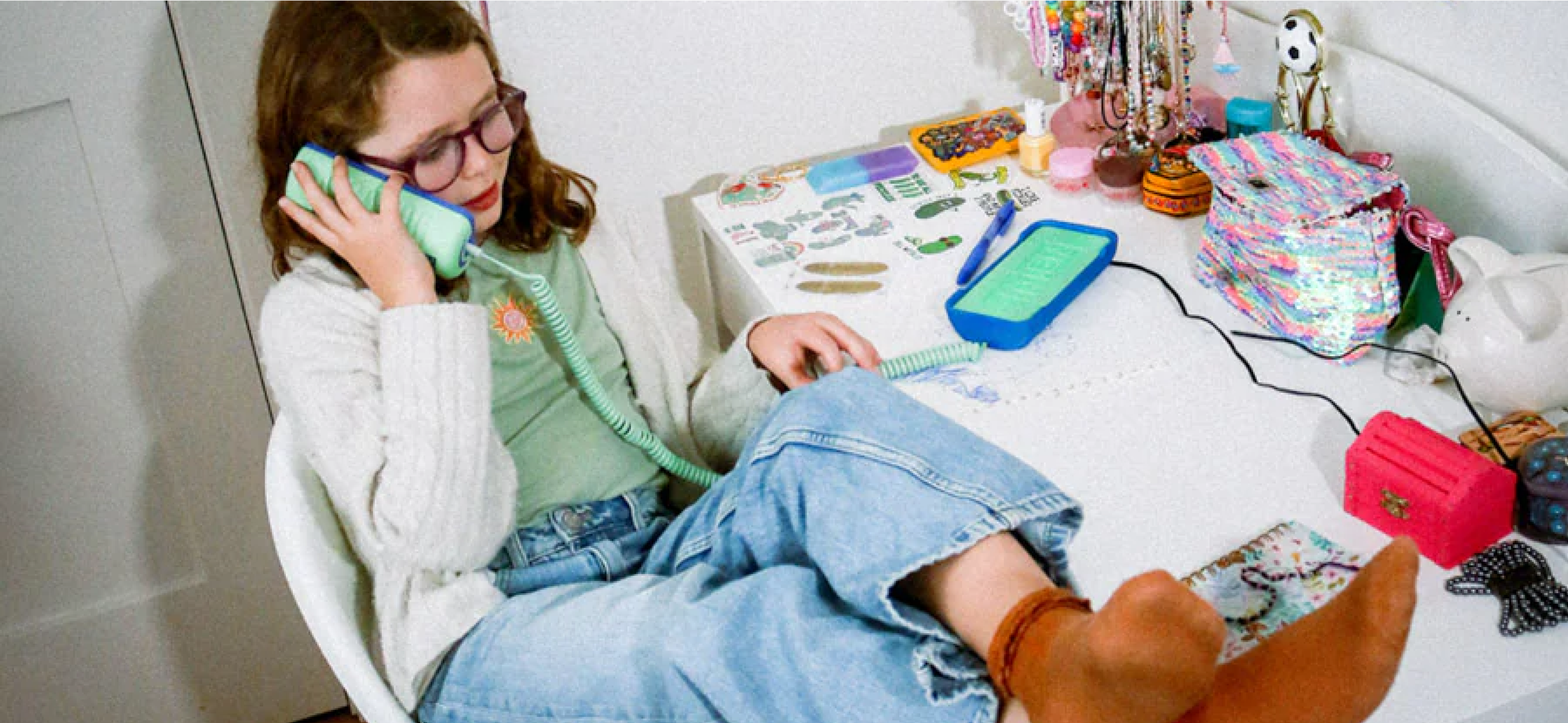
It’s often the adults, not the children, who are demanding this change. We feel overstimulated and exhausted by the constantly shifting trends and trying to keep up with the overflow of content and information, available at our fingertips. Leading to the so-called “dumbphones” having a moment. The Gen Zs in our own team can name at least one friend who switches to their old Nokia when the online noise gets too much, proof that digital detoxing is no longer niche. And this article by Dezeen even highlights the four best phones for our offline time. This shift speaks volumes about how people are choosing to interact with technology.
Beyond devices, entire experiences are being redesigned around this ethos. Retreats like Unplugged offer tech-free cabins that invite guests to disconnect completely. No Wi-Fi, no screens, just the chance to recharge in nature and reconnect with themselves.
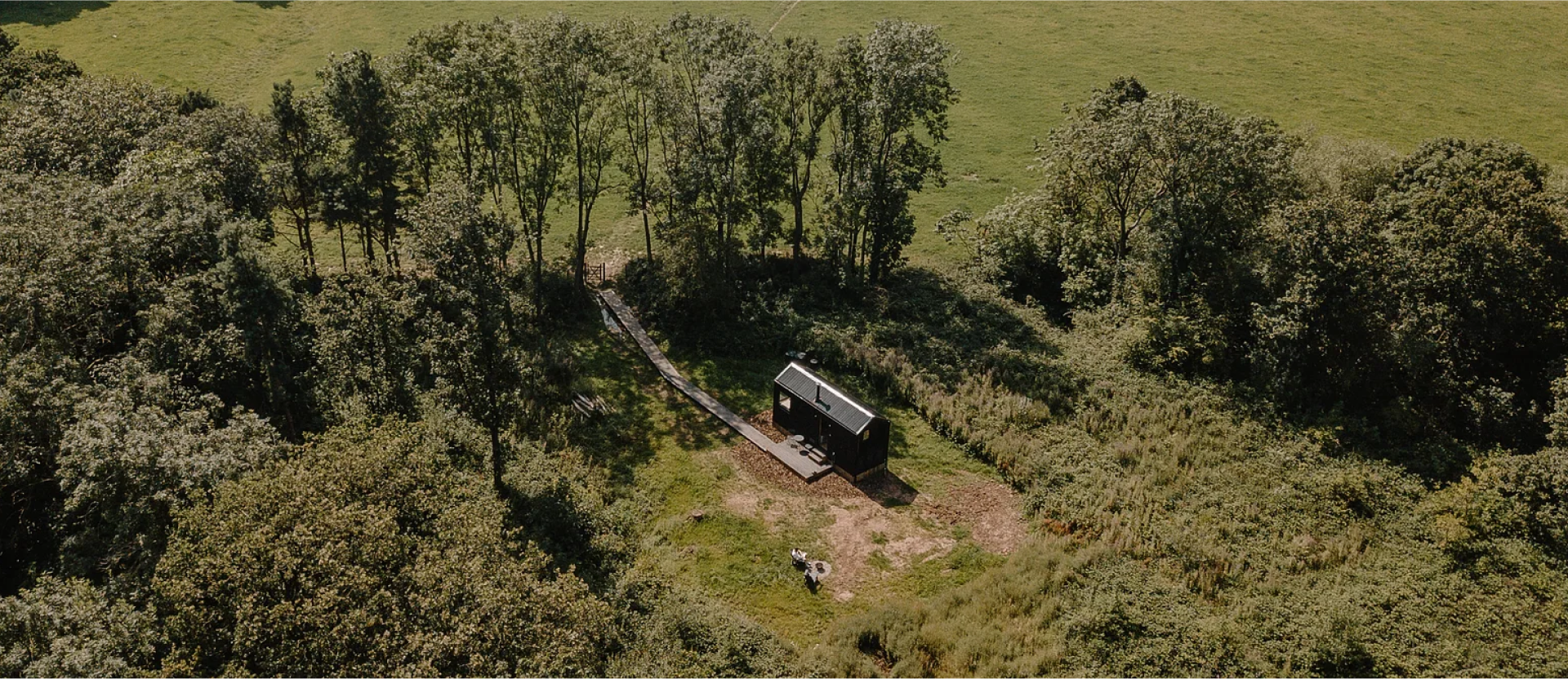
And then there are projects like Kitchen Cosmo, a smart device that creates and prints recipes based on your leftovers, it’s AI without the overwhelm. Created by MIT students Jacob Payne and Ayah Mahmoud, it reimagines how technology can fit quietly into our daily lives. It’s a brilliant example of using innovation to ground people, not distract them, by blending creativity, functionality and calm into something genuinely useful.
On a similar note, we were really impressed by Wooltech, a new innovation by designer Hinna A. Khan, a recent Central Saint Martins graduate, that blends natural wool with electronic functionality. Her work reimagines long-known materials for modern needs, creating sustainable, biodegradable circuits that challenge the dominance of plastic in tech. It’s a powerful reminder that some of the most forward-thinking solutions come from looking back, embracing simplicity, tradition and what was once instinctively known.
We see this as more than a “nostalgia trend”, it’s a cultural shift. A new kind of innovation that values rest, simplicity and mental wellbeing over constant stimulation.
If moving forward means creating products and spaces that help us slow down, we’re all for it.
